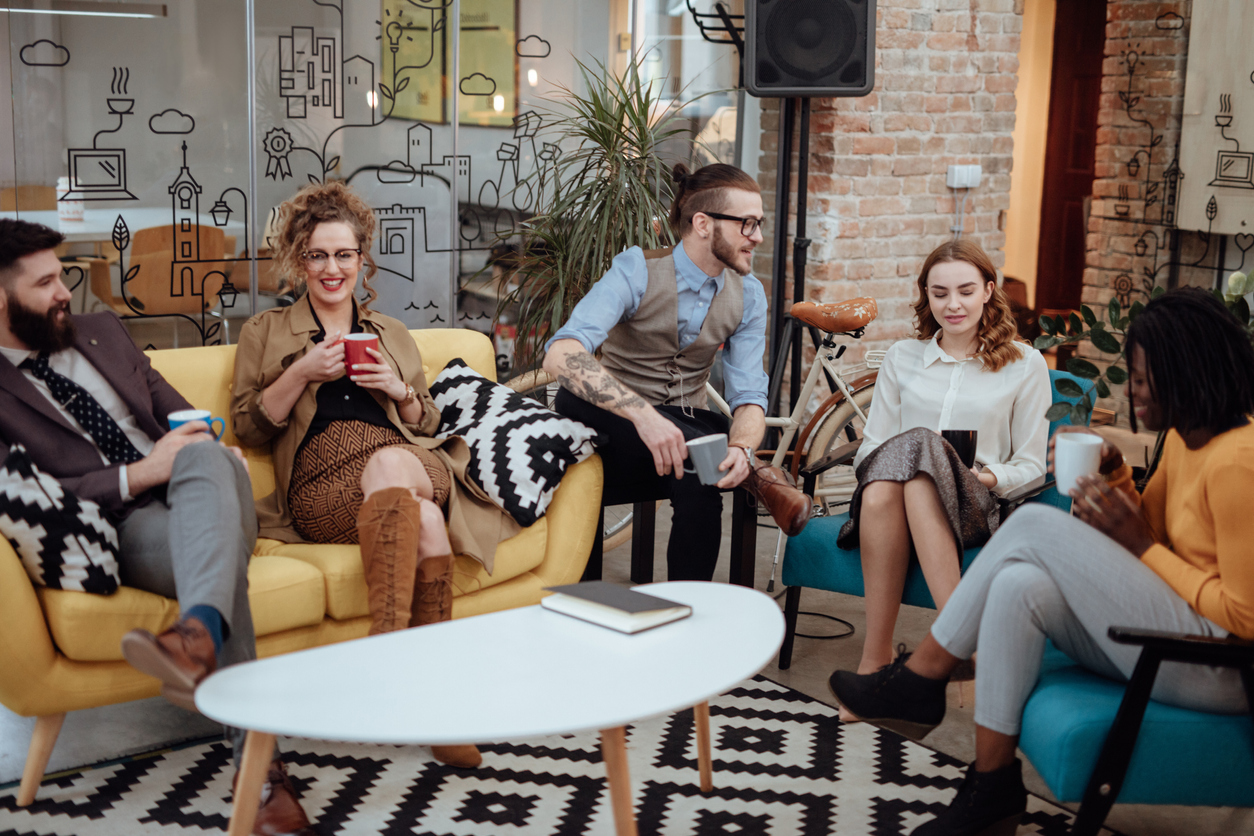Not a fan of Mondays?
We’ve got an idea for you: beat that work reluctance with your team. If NONE OF YOU are feeling motivated to work, let’s address it together. Let’s turn a bug into a feature. Start your week with a “Monday blues” team kickoff over coffee and get enthusiasm, creativity, and a can-do attitude.
Make it a tradition to gather regularly for coffee. Check out our article by @Gennadii Andreev to see how it works and why the traditional bar party might be less effective. Cheers to a productive and successful week ahead! ☕🚀
Coffee in teamwork: a drink of revolution, a beverage of evolution
Gennadii Andreev, PhD in Philosophy
It is not a secret that every Friday evening many people spend time in bars, drinking liquor. It was not a secret even three centuries ago, when men (and sometimes women) enjoyed gin and wine in tavern every day after 14-16-hours working. But European monarchs, especially French kings, tried to limit alcohol drinking. After attempts of “dry laws”, subjects of these kings went to cafes to drink coffee.
Et voila!
Urban middle class has limited its liquor drinking and became sober. Sober people began to think. Coffee helped them to concentrate on the fundamental issues of their society. Concentration to issues made detailed consideration, and after that these people sought and found a solution. Hailey Eber concluded: “The Enlightenment and subsequent intellectual movements were also fueled by coffee.”[1] This solution was the Revolution. The French Revolution and its consequences radically changed the old world… As Eddy Kyle Gilpin wrote: “During the years 1789 to 1793, many of the events of the French Revolution had their beginnings either in or in the vicinity of the Parisian cafés”[2].
Now, teams and crews permanently need revolution, in some radical solutions, which will make their companies more successful.
The foundation of business success is the full cooperation of team-members. But today we have another inner engine of our companies. It is our diversity. Many cultures, life-style, and attitudes help to find new and not-standard solutions for actual issues. Some groups practice old kind ways to discuss problems with wine. In fact, people become more open and their tongues work better. Among said words they can find a solution.
However, this way is not for all in our society. Brainstorming under alcohol is not acceptable for Muslims, several Protestant denominations, Jews (if only this wine is kosher), and people who follow a sober lifestyle (for their own reasons). In addition, some people drink only with close friends and relatives.
But coffee is the best beverage to seek together new methods and discover not commonplace ways.
Present days all go crazy with team training. Some companies do these studies every week! But they come to the opposite result: constant distress and burning out.
Team life is permanent tension, and to add one tension more would be risky for the company. That is why it is better once to gather to drink coffee and discuss someone at ease. Cup of coffee will help every crewmember to concentrate.
To think logically is 80% of an issue’s solution. To discuss logically is 100% of the solution. After a little cup of coffee people usually start to think and speak in a logical way.
So, gather one day (better after lunch) in the conference room, make cups of coffee and start discussing. Let it be spontaneously without topic, topic will be found by the debate. And this debate will be your issue.
As Barry D. Smith, Amanda Osborne and others emphasized in 2004 “Caffeine also enhances performance on selective attention tasks”[3]. Of course, selective attention is necessary and even a mandatory part of our consciousness to resolve issues.
Drink coffee and discuss, and your team will be steady and make a revolution in business!
- nypost.com/2021/07/17/how-coffee-fueled-the-enlightenment-and-the-union-army-victory/ (Last access February, 4th)
- [2] Eddy Kyle Gilpin, “Café Liberté: TheRole of the Coffeehouse in the French Revolution”, The Alexandrian, IX no 1, (2020),
- [3]
- Astrid Nehlig (Ed.), Coffee, Tea, Chocolate and the Brain (Strasbourg: Inserm, 2004), 45



